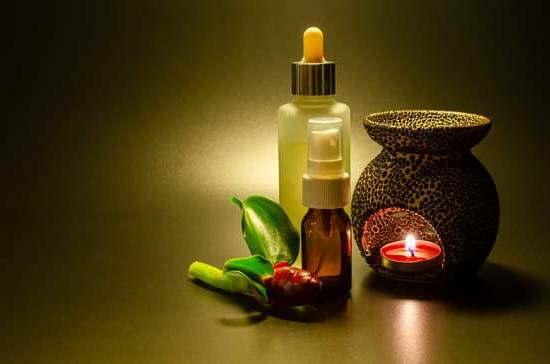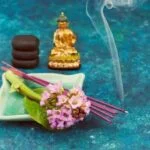Aromatherapy is a holistic healing treatment that uses natural plant extracts, known as essential oils, to promote physical and psychological well-being. These potent oils are derived from various parts of plants and have been used for centuries for their therapeutic properties. In this article, we will explore the fascinating world of aromatherapy and delve into the unique benefits of different essential oils in enhancing our overall wellness.
Essential oils are highly concentrated plant extracts that capture the essence and fragrance of the plant. Each essential oil possesses distinct properties and benefits that make them valuable in aromatherapy practices. From promoting relaxation and reducing stress to boosting immunity and improving respiratory health, essential oils offer a myriad of therapeutic effects when properly utilized in aromatherapy treatments.
Different types of essential oils play specific roles in enhancing our well-being. Lavender essential oil is revered for its calming properties, while peppermint essential oil is known for its invigorating effects. Tea tree essential oil offers powerful antimicrobial properties, while eucalyptus essential oil aids in respiratory health.
Lemon essential oil has mood-boosting effects that can uplift spirits. Understanding the unique benefits of each essential oil allows us to harness their healing powers effectively in aromatherapy practices for a holistic approach to wellness.
Benefits of Aromatherapy in Wellness
Aromatherapy is a holistic healing treatment that uses natural plant extracts, known as essential oils, to promote physical and mental well-being. These potent aromatic oils have been used for centuries for their therapeutic properties, offering a wide range of benefits in enhancing overall wellness. Each essential oil has unique characteristics and can be used in various ways to support different aspects of health.
Here are some of the key benefits that aromatherapy can provide in promoting wellness:
- Relaxation and Stress Relief: Essential oils like lavender, chamomile, and ylang-ylang are well-known for their calming properties. They can help reduce stress, anxiety, and promote relaxation, making them ideal for creating a peaceful atmosphere at home or during self-care practices.
- Improved Sleep Quality: Certain essential oils such as lavender and cedarwood have sedative effects that can aid in improving sleep quality. Diffusing these oils before bedtime or adding them to a warm bath can create a soothing environment conducive to restful sleep.
- Mood Enhancement: Citrus essential oils like lemon, bergamot, and sweet orange are uplifting and energizing. These oils can help boost mood, improve focus, and increase feelings of positivity. They are great for combating fatigue or low spirits.
In addition to these benefits, aromatherapy also offers support in alleviating headaches, relieving muscle pain, boosting immunity, and enhancing cognitive function. By incorporating essential oils into your daily routine through methods such as inhalation or topical application (with proper dilution), you can tap into the healing powers of nature to enhance your overall wellness. Experimenting with different essential oils will allow you to discover what works best for you and how each one contributes uniquely to aromatherapy practices.
Understanding the Different Types of Essential Oils
Aromatherapy involves the use of essential oils to promote physical, mental, and emotional well-being. Each essential oil has unique properties that can benefit the body and mind in various ways. Understanding the different types of essential oils is crucial in harnessing the full potential of aromatherapy.
Lavender Essential Oil
Lavender essential oil is one of the most popular and versatile oils used in aromatherapy. It is known for its calming and relaxing effects, making it ideal for reducing stress and anxiety. In addition, lavender oil can also promote better sleep quality and soothe headaches. Incorporating lavender essential oil into your aromatherapy routine can help create a peaceful environment conducive to relaxation.
Peppermint Essential Oil
Peppermint essential oil is celebrated for its invigorating and energizing properties. The crisp scent of peppermint can help boost focus, concentration, and mental clarity. Additionally, peppermint oil is often used to alleviate nausea, headaches, and respiratory issues. By incorporating peppermint essential oil into your aromatherapy practices, you can experience a sense of refreshment and rejuvenation.
Tea Tree Essential Oil
Tea tree essential oil is renowned for its powerful antimicrobial and antibacterial properties. This oil is commonly used in aromatherapy to purify the air and support immune system function. Tea tree oil can also aid in treating skin conditions such as acne and infections due to its healing properties. Including tea tree essential oil in your aromatherapy regimen can help create a clean and germ-free environment while promoting overall wellness.
Peppermint Essential Oil
One of the key benefits of using peppermint essential oil in aromatherapy is its ability to promote mental clarity and focus. The stimulating aroma of peppermint oil can help improve cognitive function, increase alertness, and boost energy levels. Whether diffused in the air or applied topically (diluted with a carrier oil), peppermint oil can have a rejuvenating effect on both the mind and body.
In addition to its mental benefits, peppermint essential oil also possesses analgesic properties that make it effective in relieving muscle and joint pain when used in massage blends or added to bath water. Its cooling sensation can help reduce inflammation and provide soothing relief to sore muscles. Overall, incorporating peppermint essential oil into your aromatherapy routine can bring about a sense of refreshment, increased concentration, and relaxation.
| Benefits | Uses |
|---|---|
| Relief from nausea, headaches, sinus congestion | Diffuse in the air or diluted with carrier oil for topical application |
| Promotes mental clarity, focus, alertness | Improves cognitive function, increases energy levels |
| Analgesic properties for muscle/joint pain relief | Add to massage blends or bath water for soothing effect |
Tea Tree Essential Oil
Antimicrobial Properties
One of the key benefits of Tea Tree Essential Oil in aromatherapy is its strong antimicrobial properties. The oil contains compounds like terpinen-4-ol that have been found to have antibacterial and antifungal effects.
When diffused or used in aromatherapy practices, Tea Tree Oil can help purify the air, eliminate harmful bacteria and viruses, and prevent the spread of infections. It is often used in natural cleaning products or added to homemade skincare remedies due to its ability to combat germs effectively.
Immune System Support
Tea Tree Essential Oil is also known for its immune-boosting properties. By stimulating the immune system and promoting overall wellness, this oil can help the body fight off illnesses more effectively. In aromatherapy, inhaling Tea Tree Oil can enhance respiratory function and clear congestion, making it a valuable tool during cold and flu seasons. Additionally, its antimicrobial benefits can support the body’s natural defense mechanisms against pathogens.
Skin Care Benefits
In addition to its antimicrobial properties, Tea Tree Essential Oil is commonly used in skincare products for its ability to treat various skin conditions. From acne-prone skin to minor cuts and scrapes, this essential oil has been shown to reduce inflammation, soothe irritation, and promote healing.
When diluted with a carrier oil or added to lotions or creams, Tea Tree Oil can provide relief from itching, redness, and other skin issues. Its versatility makes it a staple ingredient in many natural beauty formulations aimed at improving skin health.
Eucalyptus Essential Oil
One of the main components of eucalyptus essential oil is eucalyptol, which has been studied for its potential as a natural expectorant. This means that eucalyptus oil may help loosen mucus and phlegm in the airways, making it easier to expel when coughing. In addition to its expectorant properties, eucalyptus oil also has anti-inflammatory and antimicrobial effects that can further support respiratory health by reducing inflammation in the airways and fighting off harmful pathogens.
In aromatherapy, eucalyptus essential oil is often used not only for physical benefits but also for its invigorating scent that can promote mental clarity and alertness. The refreshing aroma of eucalyptus oil can help improve focus, concentration, and overall cognitive function. Whether used alone or in combination with other essential oils, eucalyptus oil can be a valuable tool in promoting respiratory wellness and enhancing mental well-being through aromatherapy.
| Benefit | Description |
|---|---|
| Respiratory Support | Eucalyptus essential oil helps clear nasal passages and promote easy breathing. |
| Expectorant Properties | The eucalyptol in eucalyptus oil may help loosen mucus and phlegm. |
| Mental Clarity | The invigorating scent of eucalyptus can improve focus and concentration. |
Lemon Essential Oil
When it comes to using essential oils for aromatherapy, Lemon essential oil stands out for its mood-boosting effects. The invigorating and refreshing scent of Lemon essential oil is known to help uplift the spirits and promote a sense of positivity. In aromatherapy, Lemon essential oil is often used to alleviate feelings of stress, anxiety, and fatigue, making it a popular choice for those looking to improve their emotional well-being.
One of the key benefits of using Lemon essential oil in aromatherapy is its ability to improve focus and concentration. The bright and citrusy aroma of Lemon essential oil can help clear the mind and enhance mental clarity, making it an ideal choice for students studying for exams or individuals working on important projects. Diffusing Lemon essential oil in a workspace or study area can create a stimulating environment that promotes productivity and alertness.
In addition to its mood-boosting effects, Lemon essential oil also has purifying properties that make it a valuable asset in aromatherapy. The antiseptic qualities of Lemon essential oil can help cleanse the air and eliminate odors, creating a fresh and clean atmosphere in any space. Whether used alone or blended with other complementary essential oils, Lemon essential oil is a versatile option for those seeking emotional balance and mental clarity through aromatherapy.
Conclusion
In conclusion, essential oils play a vital role in the practice of aromatherapy by providing a natural and holistic approach to enhancing overall well-being. Each type of essential oil offers unique benefits and therapeutic properties that can be utilized for various purposes in aromatherapy. From promoting relaxation and reducing stress to improving respiratory health and boosting mood, essential oils have been effectively used for centuries to support physical, mental, and emotional wellness.
Understanding what each essential oil does for aromatherapy is essential in utilizing them effectively in daily routines or specific treatments. Lavender essential oil, for example, is renowned for its calming and soothing effects, making it ideal for promoting relaxation and better sleep quality. Peppermint essential oil, on the other hand, is commonly used to alleviate headaches and improve focus and mental clarity.
Furthermore, tea tree essential oil stands out for its powerful antimicrobial properties that can help fight against bacteria and viruses, making it a popular choice for disinfecting surfaces or aiding in skin care routines. Eucalyptus essential oil offers respiratory benefits by clearing congestion and easing breathing, especially during cold and flu seasons.
Lastly, lemon essential oil’s refreshing scent not only uplifts the mood but also has antibacterial properties that can purify the air when used in diffusers. By incorporating these diverse essential oils into aromatherapy practices, individuals can harness their healing powers to enhance their overall quality of life naturally.
Frequently Asked Questions
What Are Each Essential Oils Used For?
Essential oils have a wide range of uses depending on the type of oil. For example, lavender essential oil is known for its calming properties and can help with relaxation and sleep.
Peppermint essential oil is often used for its refreshing and energizing effects, while tea tree oil is popular for its antibacterial and anti-inflammatory properties, often used in skincare.
What Are the 7 Essential Oils?
The 7 most common essential oils include lavender, peppermint, tea tree, eucalyptus, lemon, chamomile, and rosemary. Lavender is widely known for its soothing scent and relaxing properties. Peppermint is commonly used for its invigorating aroma and potential benefits for digestion. Tea tree oil is renowned for its antimicrobial properties.
What Are the 12 Must Have Essential Oils?
There are 12 essential oils that are considered must-haves in any collection. These include lavender, tea tree, peppermint, lemon, eucalyptus, frankincense, rosemary, chamomile, ylang-ylang, bergamot, geranium, and cedarwood. Each of these oils has unique benefits ranging from relaxation to skincare to immune support.

Are you looking for a natural way to improve your health and wellbeing?
If so, aromatherapy may be the answer for you.





